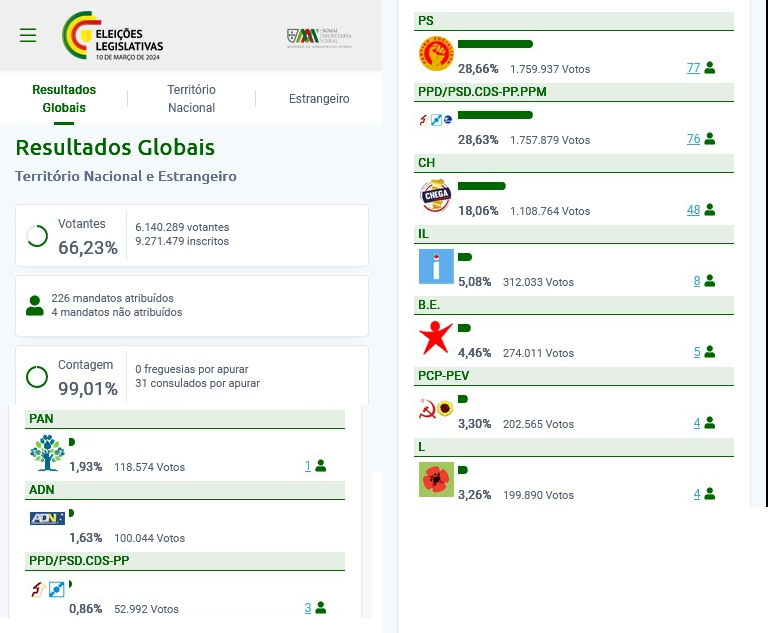Less than one percent of the votes separate the Democratic Alliance from the Socialist Party, at a time when the results in constituencies inside and outside Europe still need to be determined. After an extremely close election night, uncertainty still hangs in the air. If, on the one hand, the PS has already recognized defeat and assumed itself as a force for the opposition, on the other, the left remains hopeful for a government solution. The AD hopes, in turn, that Luís Montenegro will be appointed prime minister, while the Liberal Initiative and Chega have shown themselves available to integrate a solution.

With 29.52 percent of the votes (adding the results of AD on the continent with those of the PPD/PSD and CDS-PP coalition in Madeira) , the Democratic Alliance has a 0.89 percent advantage over the socialists. However, it remains to be added to these accounts the votes in circles inside and outside Europe, which will only be known on March 20th and which will elect four more deputies.
Until then, doubts remain. The AD leader, Luís Montenegro, has not yet detailed the possible governance scenarios, reiterating that he will keep his word not to make understandings with Chega , but without excluding this party from the dialogue he wants to have with all political forces to execute his program.
In this regard, he said he has "the firmest expectation that the PS and Chega will not constitute a negative alliance to prevent the government that the Portuguese wanted" and also hopes that the President of the Republic will nominate him to form the executive.
At this moment, the only possibility for two parties to have an absolute majority would be a coalition between the PSD and Chega or between the PSD and the PS, reissuing the Central Bloc government of the 1980s , something also already rejected by the two main Portuguese parties.
Despite the major changes that these elections introduced in the Portuguese political landscape, the two largest parties of the post-25th of April democracy each continue to have the capacity to block any proposed constitutional change , with 34 percent of mandates, more than one third of the elected deputies.
This very small difference could, however, be changed with the announcement of the deputies elected by the emigration circle from Europe and the rest of the world.